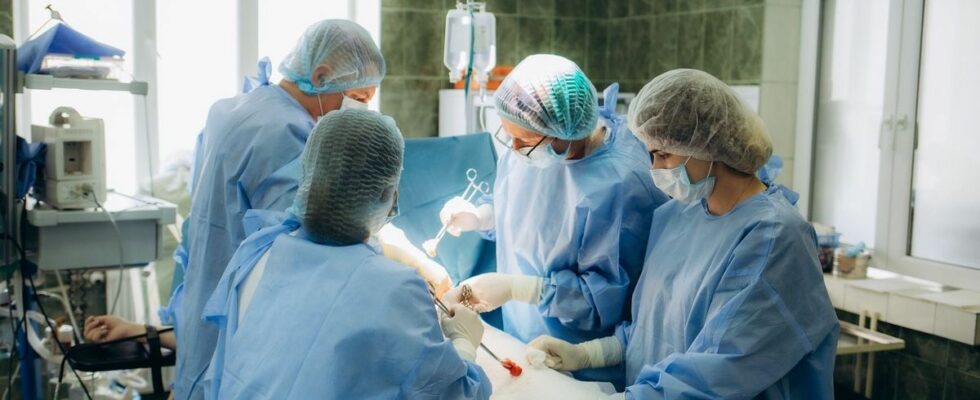Published on
updated on
Reading 3 min.
At two years old, Mathéo survived a double transplant, unprecedented in France. This complex intervention, carried out at the Necker pediatric hospital, opens the way to major advances for young patients.
At only two years old, little Mathéo has already undergone a surgical operation which will remain engraved in the history of French medicine. This young child, suffering from serious kidney and liver failure, underwent a double liver and kidney transplant, a rare and complex procedure which lasted thirteen hours at the Necker pediatric hospital in Paris. Carried out last September, this unique operation in France marks a turning point in the treatment of young patients suffering from multi-organ pathologies.
A surgical feat at Necker hospital
The intervention, carried out by a team of specialists from Necker hospital, represents a medical feat, not only because of the technical complexity but also because of the young age of the patient. Mathéo’s case is extremely rare: he is one of the very young children who survived a double transplant in France. For doctors, this simultaneous double transplant presented many challenges: the small size of the organs, the fragility of the tissues and the risk of rejection were all critical parameters that the surgeons had to control with extreme precision.
This is a very complex operation, because children are much more sensitive to complications. The specialists had to perfectly synchronize the replacement of the two vital organs, a liver and a kidney from the same donor, in order to limit the risks. for Mathéo.
A medical first for a desperate case
Before this intervention, Mathéo was in a critical situation. Born with a congenital disease affecting his kidney and liver functions (methylmalonic acidemia), the child had no other option than this double transplant to survive. The operation was planned after months of intensive care and unsuccessful treatments which failed to stabilize his condition. This double transplant represented his only chance of long-term survival.
The synchronization of organ transplantation from the same donor was crucial to the success of the procedure. The timing of this intervention was decisive, because the chances of finding a compatible donor for two organs at the same time are extremely rare, especially for such a young child.
Post-operative operations under close surveillance
The days following the operation were particularly delicate. Starting with a double return to the operating room because of his blood circulation. At the beginning of October, a first return home was finally organized for the boy. Except that again, everything does not go as planned. Her anti-rejection medication makes it difficult for her to sit up and causes her to have “excessive tremors.” New complications which will ultimately delay the final return home, in Maine-et-Loire, in mid-October.
Today, Mathéo is recovering and showing encouraging signs. He remains on immunosuppressive treatment to prevent any rejection of his new organs, and must go once a week to Necker hospital and the Tours hospital center. According to his mother, he is not allowed to use public transport, to see too many people, especially children… his liver would force him to become vegetarian. And he may need a new kidney in the following years. In the meantime, he tries to live as normal a life as possible. “We are at home, but everyday life remains as heavy as before.”admits his mother, who says she is ready, if she is compatible, to give him a kidney next time.
Hope for the future of pediatric transplants
Mathéo’s case opens new perspectives for pediatric medicine in France. This double transplant could inspire advances for other children suffering from similar pathologies.
The success of this unprecedented operation brings hope to families faced with chronic multi-organ diseases in very young children, for whom conventional treatments are no longer sufficient.
